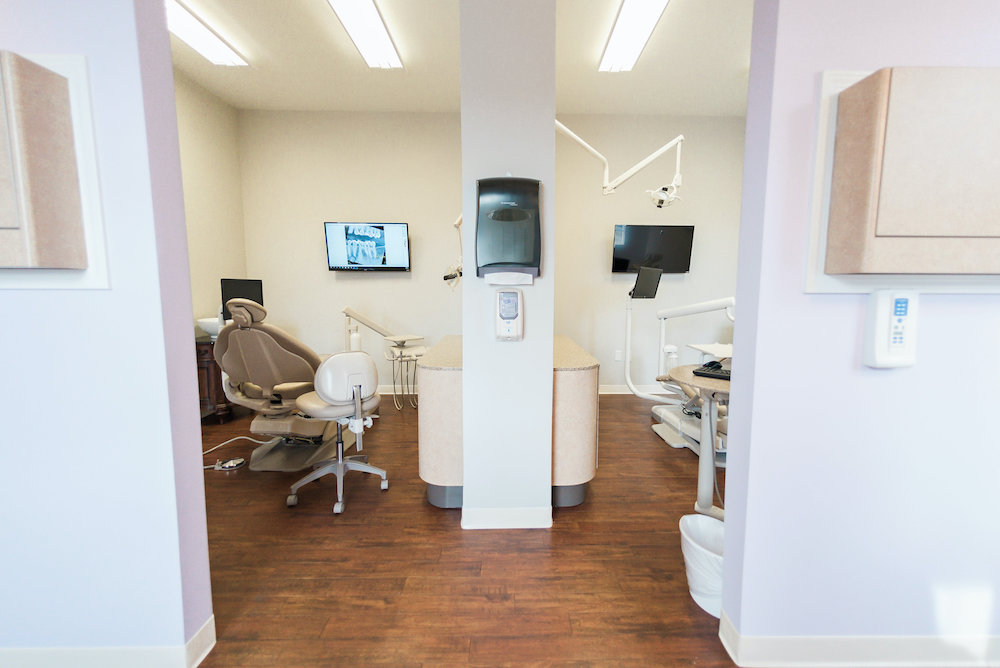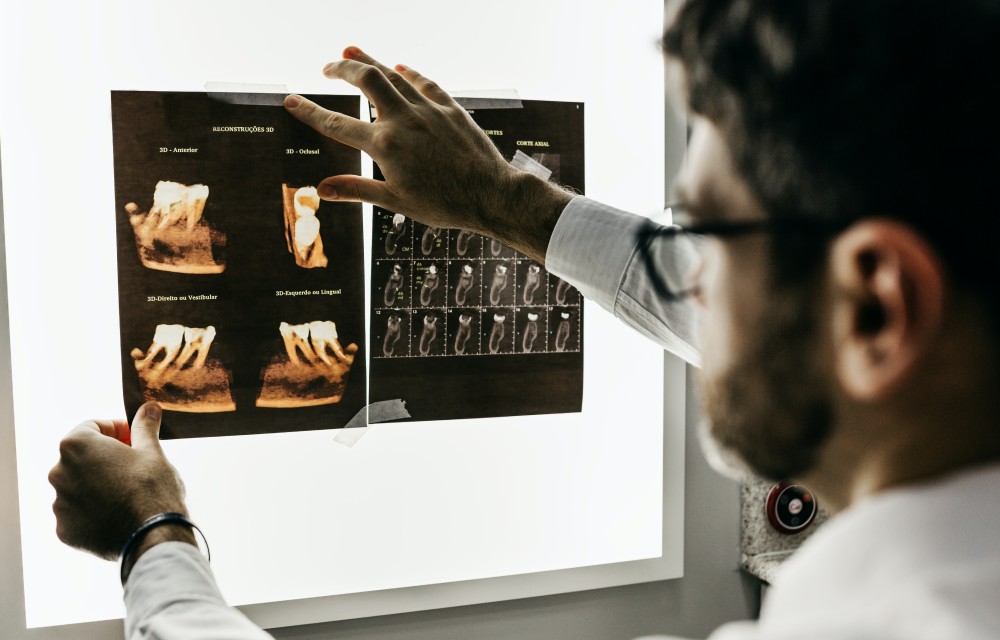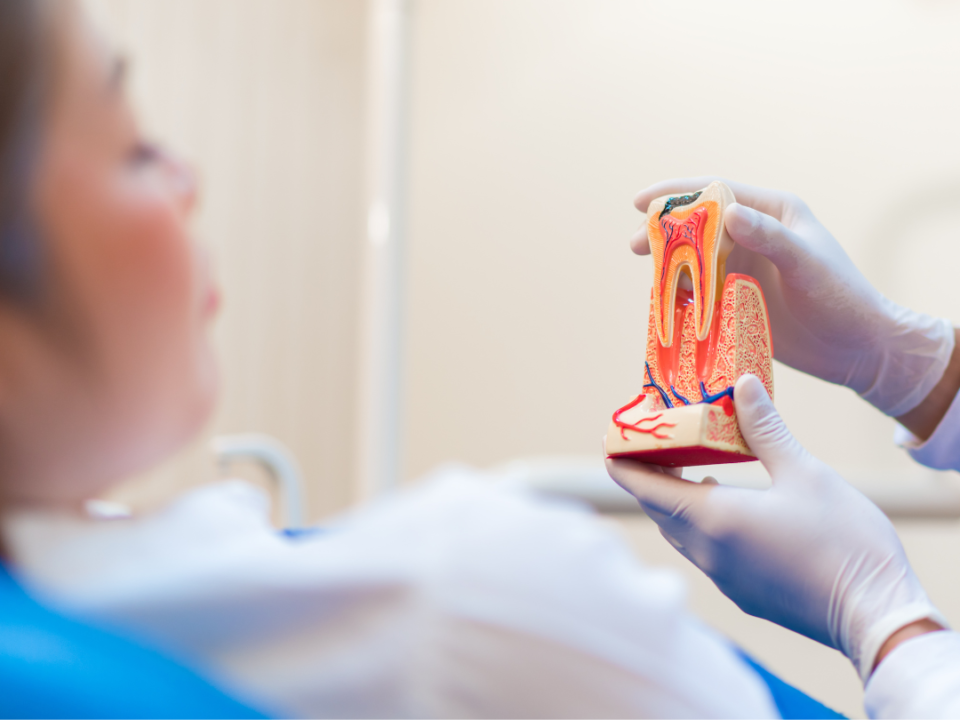
When is a Root Canal Necessary?
December 18, 2020
What To Expect After a Root Canal. Our Guide
December 22, 2020
When is a Root Canal Necessary?
December 18, 2020
What To Expect After a Root Canal. Our Guide
December 22, 2020If your dentist tells you that you need a root canal, you need to find out whether you need a specialist. While many general dentists perform the procedure, it is still important to consider all of your options, especially for more complex and urgent cases. To get the best care, first find out what kind of dentist does root canals.
Who Needs Root Canals?
A root canal enables you to save a tooth when its pulp is contaminated with bacteria and infection. If you don’t get a cavity filled in the early stages, it can deepen until the bacteria reaches the interior. An infected tooth can cause sensitivity and discomfort. Signs of needing a root canal may include the following:
- A broken or cracked tooth
- Painful or discolored gum
- Swelling of the gum
- Pain when chewing
- Tooth sensitivity to hot and cold that lingers when you stop eating or drinking the offending products
However, with the technology used by today’s endodontists, root canal treatments have become routine procedures that are much easier and more effective than in the past.
What Happens During a Root Canal?
During a root canal, the dental professional will take x-rays and other images to determine the extent of the tooth’s damage. Next, they will prepare the area by numbing it and using a dental dam over the mouth to isolate the treated tooth. Next, they will gently clean the tooth and use a dental microscope to look inside as they clean out infected pulp from the tooth.
After cleaning out the root canal, the dentist or endodontist will temporarily fill and seal the tooth and recommend that you get a crown as soon as possible to protect the tooth. When you get a crown or other restoration from your dentist, they will remove the temporary filling before placing the crown.
What If You Can’t Decide Which Dentist to Get a Root Canal From?
Not getting a root canal can lead to damage to the tooth and possible infection that can be painful and unhealthy. An alternative to a root canal is an extraction, which your dentist can perform. However, after the extraction of a tooth, you may experience pain for at least a week as the area heals. Without getting an implant on the site, your other teeth may move into the gap and change your speech, bite alignment, or appearance.
What Kind of Dentist Does Root Canals?
Both endodontists and dentists can do root canals. However, many general dentists don’t perform root canals daily. In fact, the average general dentist performs only two root canals a week. In contrast, an endodontist may average five root canal treatments a day over a five-day week. Also, general dentists may not invest in high-tech equipment to improve the outcome of the procedure.
An endodontist has all the training of a regular dentist. In addition, after getting their dental license, they get an additional two to four years of education and training to specialize in treating the pulp of teeth. Consequently, endodontists have daily experience doing root canals and endodontic surgery for their patients. They also have a greater likelihood of getting the latest technology for their office to reduce patient discomfort and improve root canal results.
So, while both dentists perform root canals, if you have a complicated case or want to get high-tech treatment from a specialist, you should seek care from an endodontist.
Endodontist Technology Makes the Difference
When it comes to what kind of dentist does root canals, you should understand that endodontists will have advanced equipment. Types of equipment that an endodontist may use to improve root canal treatment may include:
Cone Beam 3-D Imaging
Imaging of the infected tooth provides crucial information before and during the root canal for the dental professional. While x-rays are one type of imaging done, endodontists often also use 3-D beam imaging to create three-dimensional views of the affected tooth. General dentists may only use x-rays for imaging.
Dental Microscopes
The interior of a tooth that an endodontist performs a root canal on is extremely small and complicated. To see clearly in this tiny space, endodontists use dental microscopes while doing the procedure.
Ultrasonic Needles
Not all endodontists use ultrasonic technology, but it is important to understand all of the different technologies you may encounter. Ultrasonic technology enables the endodontist to complete a variety of procedures such as the removal of dental materials as well as surgical treatments. Ultrasonics is an advanced methodology for working within the tiny spaces within your tooth. Most general dentists do not have this technology available, but an endodontist is skilled with its use.
Pain Management
In addition to the above technology used by endodontists, they also have experience in administering pain medication for the procedures they perform. By having more practice doing root canals and giving numbing agents to patients, they have more experience preventing pain and discomfort for their patients.
Contact Us at Innovative Endodontics for High-Tech Solutions for Your Teeth
If you live in Goose Creek, SC, or the surrounding areas, contact us at Innovative Endodontics to make an appointment. Our technological tools allow us to provide the best possible endodontic care for each of our patients.




